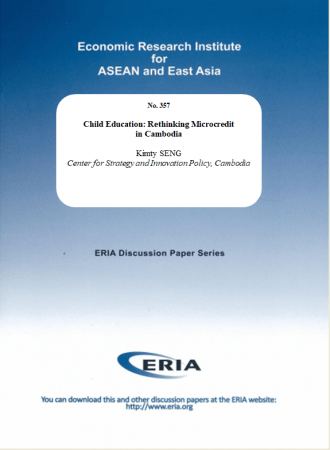Child Education: Rethinking Microcredit in Cambodia*

Conflicting and controversial conclusions about the potential effects of microcredit on socio-economic development raise concerns over the effects on child education. This study analyses the effects of microcredit offered by microfinance institutions on child education using data from the Cambodia Socio-Economic Surveys conducted in 2014 and 2017. The effects on textbook spending school dropout and child labour are quantified with regression models addressing the endogeneity of the household decision to use microcredit and of the borrowed amount. The results suggest that microcredit is unlikely to promote household spending on textbooks but is liable to increase the likelihood of a child dropping out of school and the probability of child labour.
| Child Education: Rethinking Microcredit in Cambodia |
* By Dr. Seng Kimty
The facts and views expressed are solely that of the author/authors and do not necessarily reflect that of CSIP.
